Market News, News & Event
DOES EATING DRIED FRUIT MAKE YOU GAIN WEIGHT? HEALTH BENEFITS OF CHOOSING DRIED FRUIT AS A SNACK
Using dried fruit as a snack has become a popular trend among modern consumers. However, many people still wonder: does eating dried fruit make you gain weight? The article below will help answer this question and explain why dried fruit is becoming a “must-try” trend for those pursuing a healthy lifestyle.
What is dried fruit?
Dried fruit is fresh fruit that has had most of its water content removed through various drying methods such as sun drying, heat drying, or using specialized dehydrators. The drying process typically removes 80–90% of the moisture, causing the fruit to shrink into smaller, denser pieces. Compared to fresh fruit, dried fruit has a longer shelf life and serves as a convenient snack, especially in situations where refrigeration is not available.
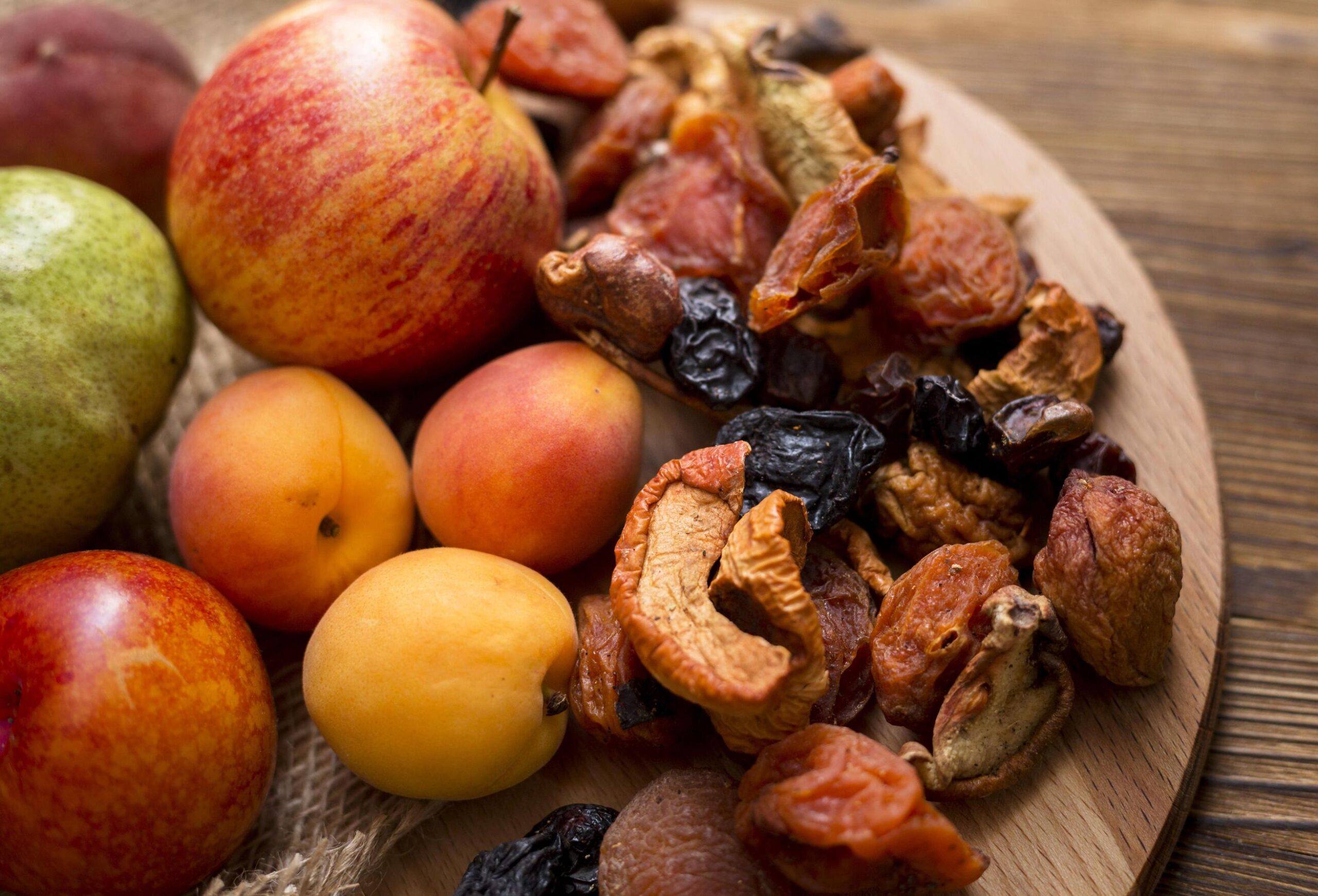
Types of dried fruits available on the market today
Thanks to the diversity of ingredients and processing methods, there are now many types of dried fruits available to suit consumers’ wide range of tastes and preferences.
Dehydrated (fully dried) fruits
Dehydrated fruits are made using traditional preservation methods that extend shelf life and reduce transportation costs by removing most of the fruit’s moisture. The water in the fruit is eliminated either by sun-drying or through modern drying technologies, resulting in products such as raisins, prunes, dried persimmons, and banana chips. This method helps retain the fruit’s natural nutrients and flavors.
In addition, modern drying technologies such as heat drying or vacuum drying can be used to better control temperature, maintaining consistent color and taste.
Soft-dried fruits
Soft-dried fruits are produced using a drying process at temperatures ranging from 40–65°C, which removes most of the moisture while preserving the fruit’s natural shape, color, and flavor—closely resembling that of fresh fruit. During production, the fruit is lightly blanched and treated with antioxidants to retain its color, then dried in a closed chamber or using solar drying technology.
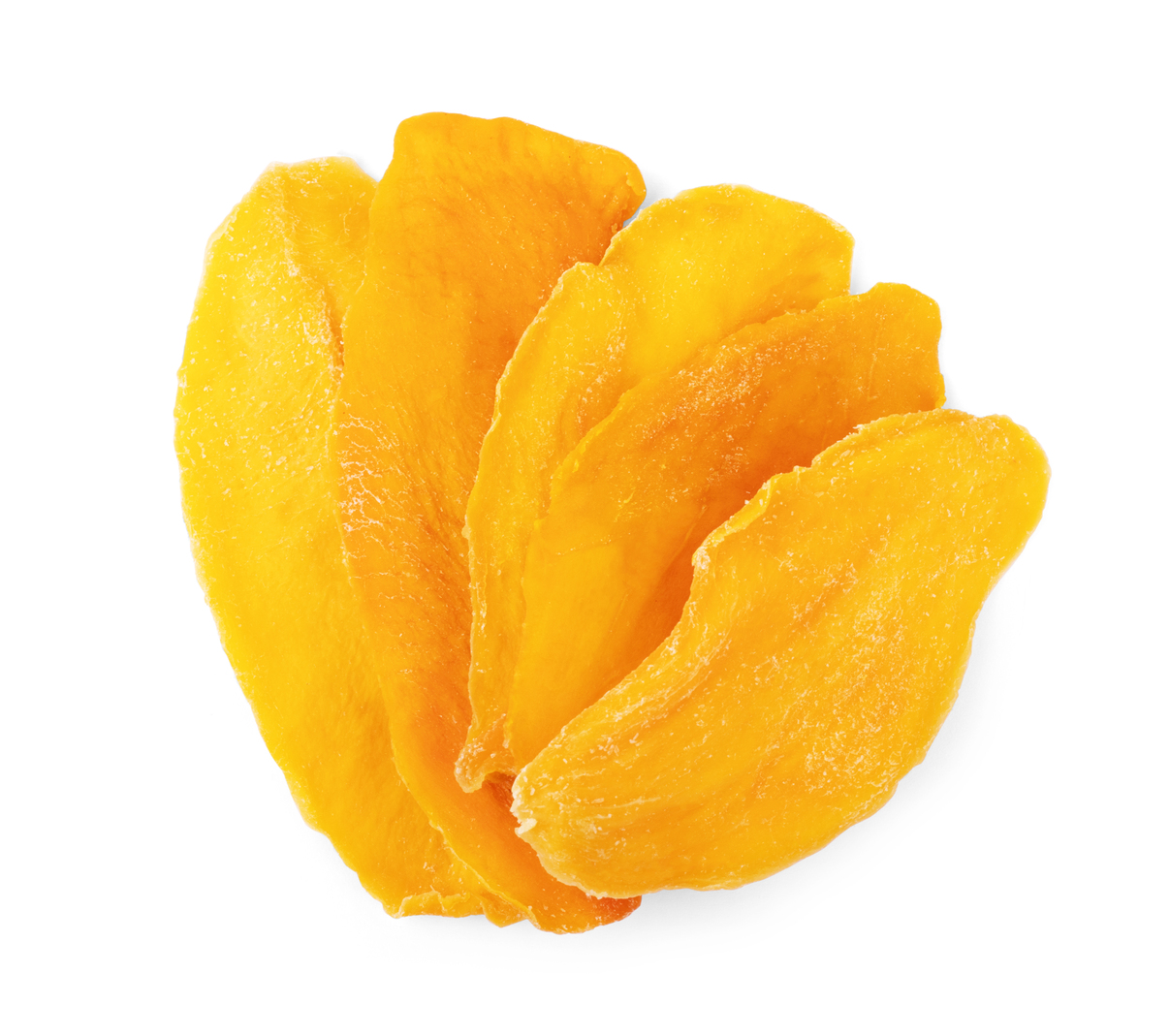
Thanks to their naturally chewy and sweet texture, soft-dried fruits offer an experience that feels almost like eating fresh fruit. Familiar fruits and vegetables such as mango, passion fruit, strawberry, sweet potato, kiwi, and soursop retain their distinctive flavors, appealing colors, and soft, easy-to-eat texture after being soft-dried — making them a favorite healthy snack choice for many people.
Freeze-dried fruits
Freeze-dried fruits represent a more premium category of dried fruit products. This method removes almost all the water content by first freezing the fruit and then placing it in a vacuum environment, where the water transitions directly from solid ice to vapor — skipping the liquid phase entirely. As a result, the fruit’s structure, color, flavor, and nutritional value are preserved to the greatest extent possible.
Almost any type of fruit can be freeze-dried, but the most common are berries and soft fruits such as bananas, strawberries, grapes, and raspberries.
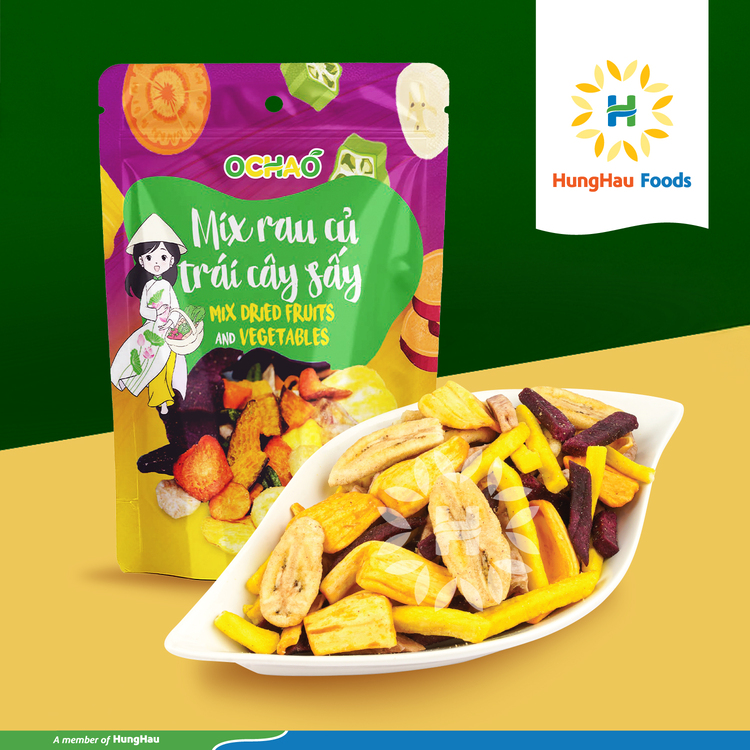
Does eating dried fruit make you gain weight?
The answer is: it depends on how reasonably you incorporate dried fruit into your diet. Specifically, whether a food causes weight gain or not depends on the amount consumed and each person’s energy expenditure. If the number of calories you take in is equal to or less than the number you burn, your body will not gain weight.
Therefore, dried fruit is not a direct cause of weight gain. In fact, when consumed in moderation, it can help with weight control.
According to research from NHANES (the U.S. National Health and Nutrition Examination Survey), people who regularly eat dried fruit tend to have more nutrient-rich diets, with higher fiber and micronutrient intake, and lower BMI compared to those who don’t. A 2020 clinical trial on overweight children also showed similar results — consuming dried apples twice a day for eight weeks did not cause abnormal weight gain, and even helped improve HDL cholesterol (the “good” cholesterol) levels.
These findings suggest that dried fruit can be a healthy snack when eaten in appropriate portions and as part of a balanced diet and nutrition plan.
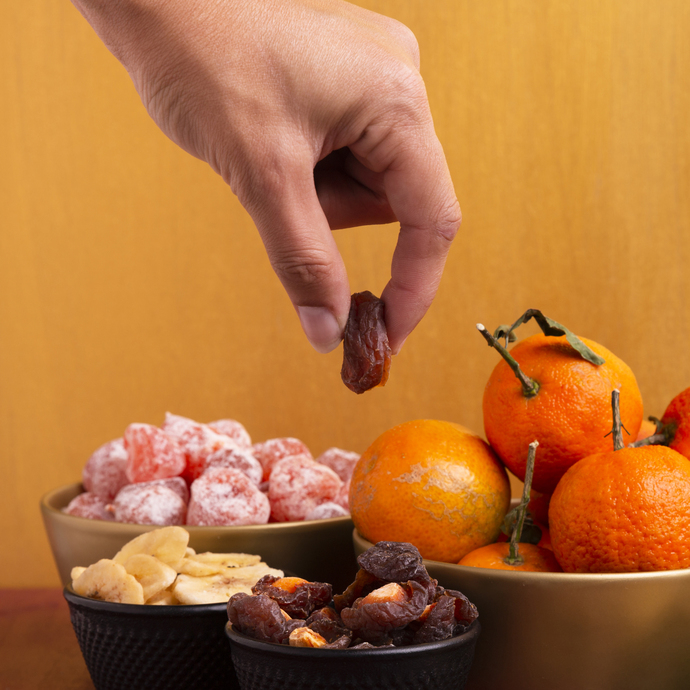
Dried fruit does not naturally contain an excessive amount of calories, but the drying process concentrates its nutrients and natural sugars. If not consumed in moderation, the condensed sugar and energy content may still contribute to weight gain. However, compared to many deep-fried or refined-sugar snacks, dried fruit is still considered a healthier alternative because it provides dietary fiber and beneficial nutrients.
| Snack | Average Calories (per 100g) |
| Crispy fried pasta | ~550 calories |
| Cookies | ~500 calories |
| Buttered popcorn | ~450 – 500 calories |
| Dried jackfruit | ~400 calories |
| Dried banana | ~350-400 calories |
Comparing average calorie between dried fruit and some popular snacks, calculated by weight per 100g
Why Are Dried Fruits Considered a Healthy Snack?
Helps Reduce the Risk of Type 2 Diabetes
A 2024 study by Jianbin Guan and colleagues revealed that consuming dried fruits can significantly lower the risk of developing type 2 diabetes. Individuals who regularly included dried fruits in their daily diets had up to a 60% lower risk of developing the disease compared to those who rarely or never consumed them. This correlation remained strong even after adjusting for other influencing factors such as BMI, physical activity levels, and overall diet quality.
Improves Digestion
Dried fruits are rich in dietary fiber, which supports digestive health and promotes a well-functioning gut. They can also be a great alternative to unhealthy snacks that are high in refined sugars and low in fiber.
| Type of Dried Fruit | Average Fiber Content (per 100g) |
| Dried figs | 10g |
| Dried apples | 8.7g |
| Dried goji berries | 8.8g |
| Dried bananas | 7.5g |
Fiber amount in some dried fruits, calculated by weight per 100g
In addition, consuming certain dried fruits—such as raisins, blueberries, prunes, and dates can also help promote the growth of beneficial gut bacteria, contributing to overall digestive health.
Provides Antioxidants and Essential Minerals for Better Health
Studies have shown that dried fruits contain high levels of potassium and polyphenols (according to the International Nut & Dried Fruit Council – INC). These nutrients play key roles in regulating cholesterol, controlling blood pressure, and reducing inflammation, all of which contribute to improved cardiovascular health.
Moreover, dried fruits are a rich source of essential minerals — for instance, 100g of dried noni fruit provides up to 345mg of calcium and 251mg of magnesium. This demonstrates that including dried fruits in your diet can elevate the nutritional value of your snacks and support overall well-being.
Some Tips for Choosing and Storing Dried Fruits
When purchasing dried fruits, consumers should prioritize products with natural colors, without dark spots or unusual discoloration. High-quality dried fruits usually have a distinct natural aroma and should not smell rancid, moldy, burnt, or artificial.
To preserve their flavor and prevent nutrient degradation, dried fruits should be stored in a cool, dry place, away from direct sunlight. Always seal the packaging tightly or keep them in airtight containers to limit air and moisture exposure — two factors that promote bacterial and mold growth.
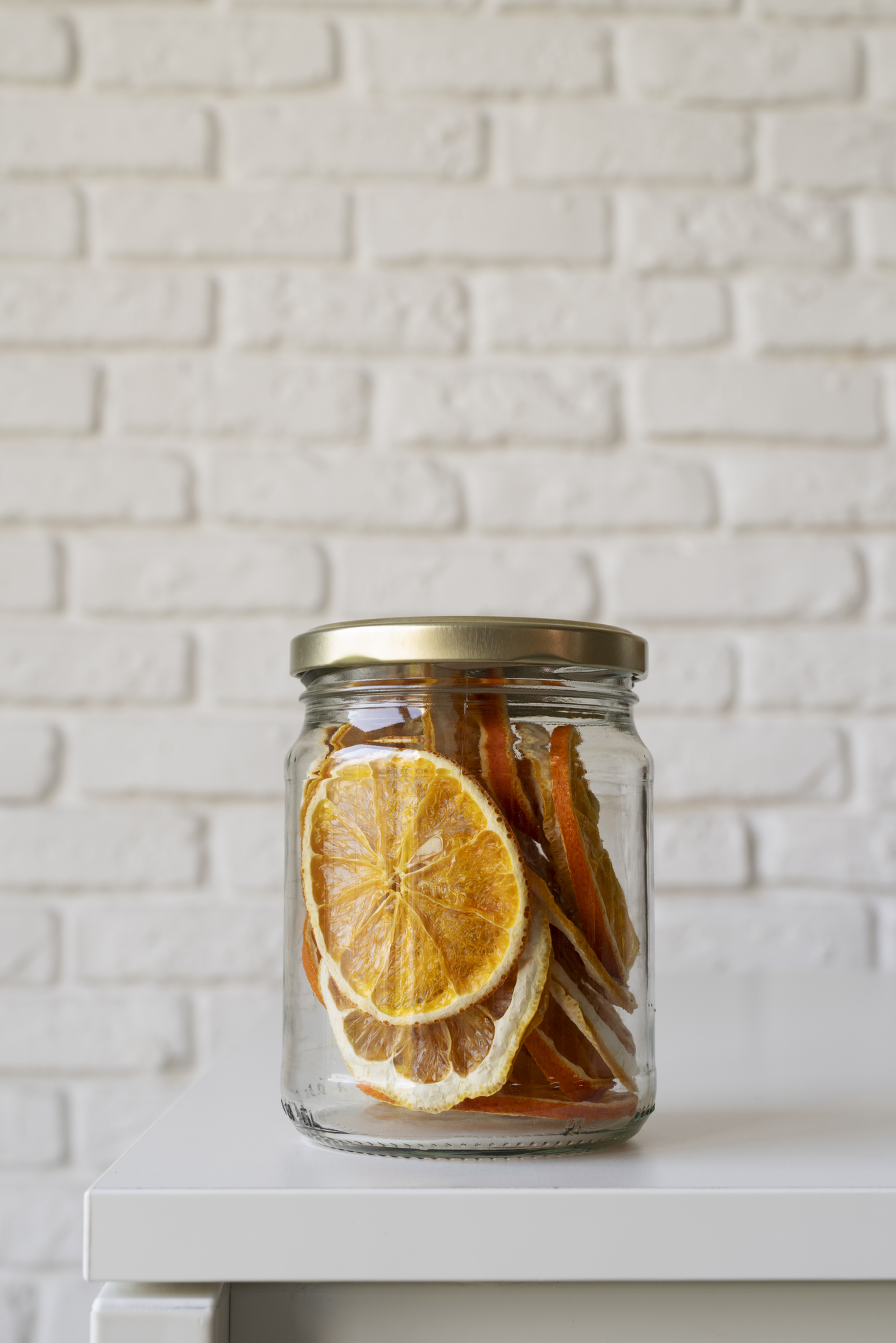
Some Popular Dried Fruit Brands on the Market
Vietnam is home to a rich variety of tropical fruits — a strong foundation for the growth of many dried fruit processing enterprises. Below are some prominent dried fruit brands that have made their mark both domestically and internationally:
- Vinamit:
A pioneering Vietnamese enterprise in the production of dried fruit products, Vinamit has achieved remarkable success in bringing Vietnamese dried fruits to global markets. Its signature products include dried jackfruit, taro chips, and soft-dried mango, among others. - L’angfarm:
Renowned for its safe, high-quality, and visually appealing specialty products from Da Lat, L’angfarm ensures food safety from ingredient preparation to packaging and distribution. In addition to dried fruits, the brand also offers teas, nuts, and fruit candies, contributing to its wide product range and strong brand identity. - OCHAO:
A brand under HungHau Foods Joint Stock Company, OCHAO is known for its dried fruit and vegetable products such as OCHAO Dried Jackfruit, OCHAO Dried Banana, and OCHAO Mixed Dried Fruits & Vegetables, which are highly favored by international customers. OCHAO proudly exports its products to over 80 countries and territories, contributing to the global recognition of Vietnamese agricultural value.
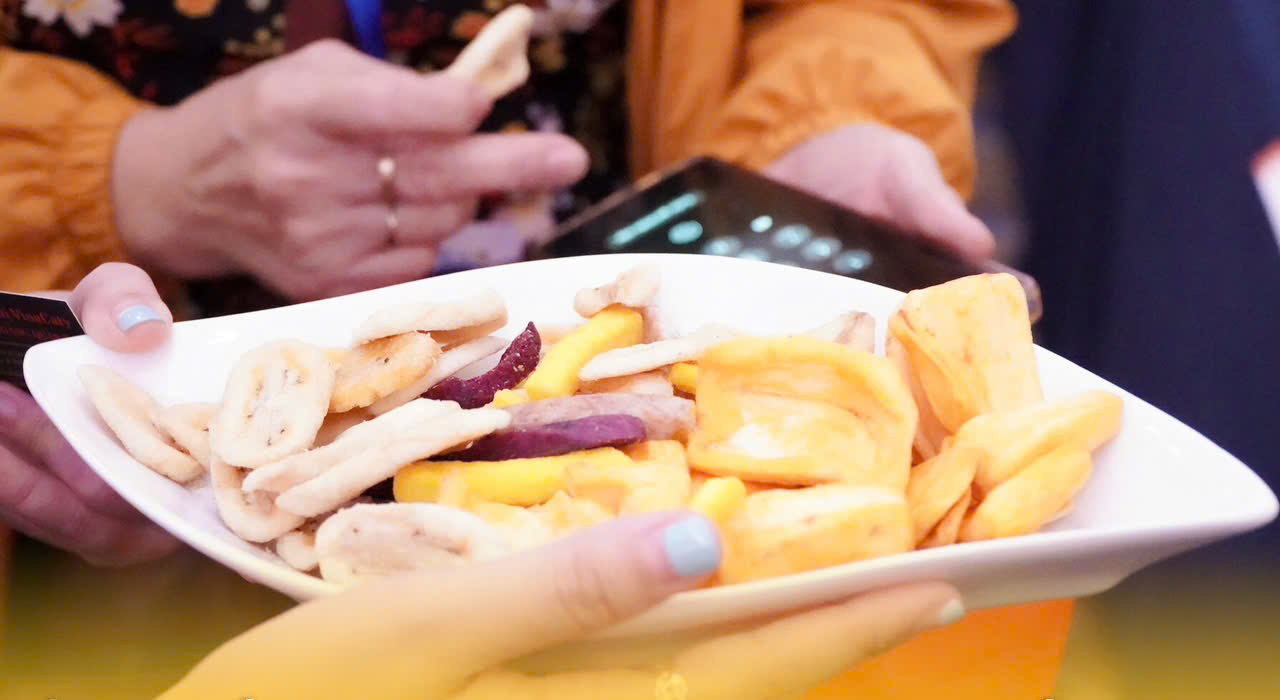
Each OCHAO product is made from carefully selected ingredients and processed using advanced drying technology to preserve the fruit’s natural flavor, vibrant color, and nutritional value. Free from preservatives and artificial flavorings, OCHAO dried fruits are a safe and convenient choice for both domestic and international consumers.
Thus, eating dried fruits will not directly cause weight gain if consumed in moderation and with proper control. Moreover, dried fruits are a healthy snacking option that not only promotes better health but also satisfies your craving for something tasty to enjoy. With their delicious flavor and rich nutrients, OCHAO dried fruits are an ideal choice for those who wish to improve their well-being and embrace a healthy eating lifestyle.
Contact for Collaboration
HungHau Foods Joint Stock Company
📍 Address: 642 Âu Cơ Street, Ward Bảy Hiền, Ho Chi Minh City, Vietnam
📧 Email: sales@hunghau.vn
📞 Hotline: (+84) 79 721 3333
📧 Email: Anna@hunghau.vn
📞 Hotline: (+84) 96 740 0333
📧 Email: yenn@hunghau.vn
📞 Hotline: (+84) 78 520 3333
🌐 Website: www.hfoods.vn
You can see more our products:
Purchase HungHau Foods and Happy Noodles Products
🛒 Website: hfoods.vn
🛍️ E-commerce platforms: myu.vn/shop | Shopee: hunghaufood
🏢 Showrooms:
- Address 1: 889 Trường Chinh, Tây Thạnh Ward, Ho Chi Minh City
- Address 2: 727 Đường 3/2, Diên Hồng Ward, Ho Chi Minh City
